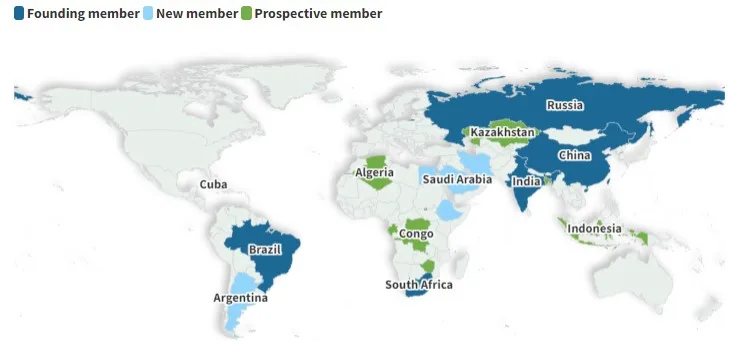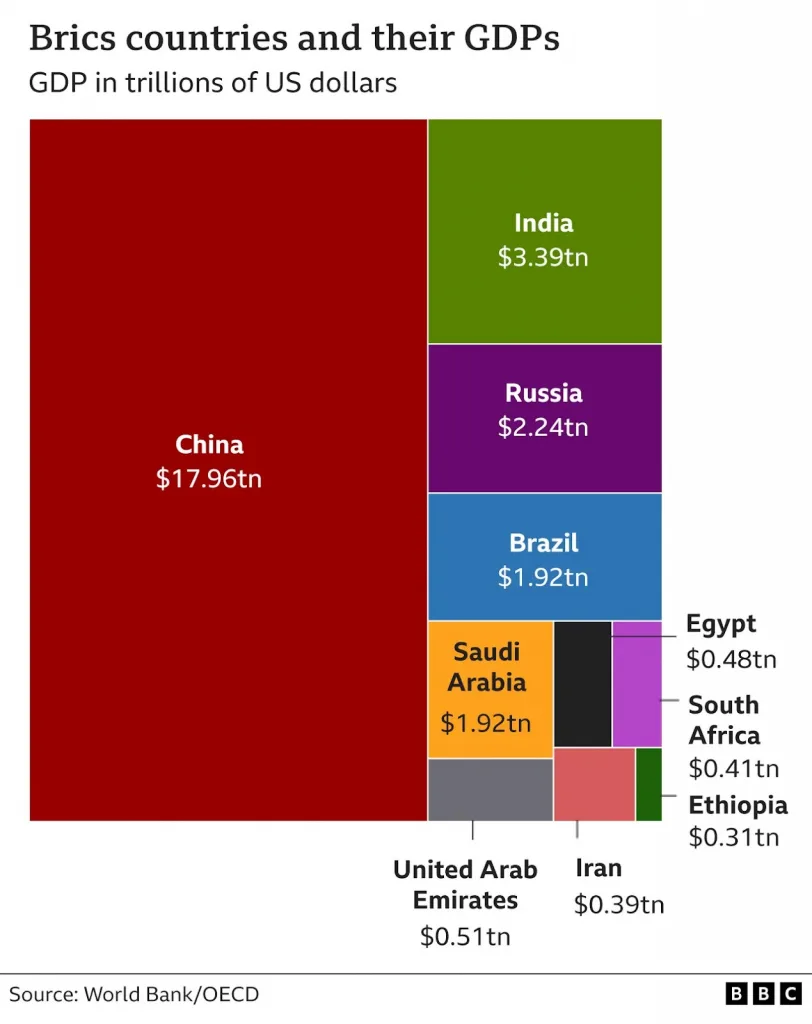Syllabus: GS2/ International Relations
Context
- The Summit in Kazan, hosted by Russia, focused on Strengthening Multilateralism for Just Global Development and Security.
Key Points of the Summit
- The Kazan Declaration, issued at the summit, is a comprehensive document that emphasizes the need for enhanced cooperation among the participating countries and presents the bloc’s unified stance on key global issues.
- The Kazan Declaration emphasized “Strengthening Multilateralism for Just Global Development and Security” with commitment to fostering peace, ensuring a fairer international order, and promoting sustainable development.
- Russia emphasized a BRICS-led payment system against SWIFT, an international financial network that Russian banks were cut off from in 2022, as well as the escalating situation in West Asia.
- The BRICS nations agreed to explore initiatives, such as BRICS Grain Exchange and BRICS (Re)Insurance Company.
- The summit also endorsed the creation of a BRICS Partner Country category, which would allow other nations to collaborate with BRICS on various projects.
- BRICS R&D Vaccine Center was announced for fostering research in vaccine development.
- India’s initiative to create an International Big Cats Alliance was recognized during the summit.
What is BRICS?
- It is an acronym that refers to a group of five major emerging national economies: Brazil, Russia, India, China, and South Africa.
- Origin: The term BRIC was coined by British economist Jim O’Neill in 2001 to represent emerging economies.
- The group began holding annual meetings starting in 2006 on the sidelines of the UN General Assembly (UNGA), and its success led to formal summits.
- BRICS nations have met annually at formal summits since 2009.
- South Africa was inducted in 2010.
- Expansion of BRICS: Argentina, Ethiopia, Egypt, Iran, Saudi Arabia, and the UAE are the six new additions to the BRICS.

- It brings together five of the largest developing countries of the world, representing around 41% of the global population, around 24% of the global GDP and around 16% of global trade.

Significance of BRICS for India
- Strengthening South-South Cooperation: India views BRICS as a platform for fostering collaboration among developing countries, amplifying their voices in global institutions like the UN and World Bank.
- Balancing Global Power: BRICS serves as a counterbalance to Western-dominated alliances such as the G7. For India, this helps in diversifying its foreign relations and reducing dependency on Western powers.
- Trade Diversification: BRICS promotes economic cooperation, trade, and investment between member countries.
- New Development Bank (NDB): It provides BRICS nations with access to funding for infrastructure and sustainable development projects, aligning with India’s growth objectives.
Challenges
- Varying Agendas: India’s concerns over terrorism and border security may differ from other members like China and Russia, who may prioritize their regional and geopolitical interests over these issues.
- Geopolitical Rivalry: China’s growing influence within BRICS, especially with the inclusion of countries like Iran and Saudi Arabia (which have strong ties with China), raises concerns about BRICS tilting towards a pro-China bloc.
- Balancing Middle Eastern Alliances: The inclusion of Iran, Saudi Arabia, and the UAE introduces complexities in India’s relationships within the Middle East.
- Trade Barriers: Intra-BRICS trade barriers such as tariffs, regulatory differences, and currency issues persist, limiting India’s ability to fully capitalize on trade opportunities within the group.
Way Ahead
- India’s participation in BRICS is crucial, both for advancing its national interests and for shaping global governance in an increasingly dynamic geopolitical environment.
- As one of the founding members, India has consistently played a key role in ensuring that BRICS remains a collaborative platform for emerging economies to assert their influence on the global stage.
- BRICS presents India with a unique opportunity to diversify its trade networks, attract foreign investments, and engage in joint infrastructure and development initiatives.
- In this context, India should strategically utilize the resources of the New Development Bank (NDB) to finance critical projects that align with its long-term growth goals.
Source: TH
Previous article
Cyclone Dana to Hit Odisha and West Bengal